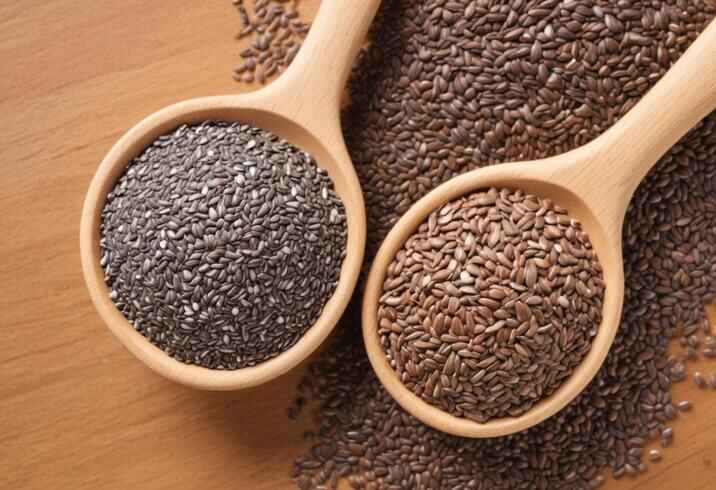Chia Seeds vs. Flax Seeds: The Ultimate Comparison for Your Daily Diet

When you step into the health aisle of your local grocery store, you’re often bombarded with shelves stocked with various superfoods, each claiming incredible health benefits. Among these, chia seeds and flax seeds stand out as popular choices. These tiny seeds are nutritional powerhouses and are often recommended by nutritionists and health enthusiasts alike. But which one should you incorporate your diet? Today, we’ll dive deep into the world of chia seeds and flax seeds, exploring their nutritional profiles, health benefits, culinary uses, and ultimately help you decide which seed can better suit your dietary needs.
Understanding the Basics: What Are Chia Seeds and Flax Seeds?
Before we pit these seeds against each other, let’s understand what each seed brings to the table.
Chia Seeds: The Aztec Superfood
Chia seeds originate from the Salvia hispanica plant, a member of the mint family, and were a staple in Aztec and Mayan diets. They are small, oval seeds with a unique ability: they can absorb up to 12 times their weight in liquid, forming a gel-like consistency. This feature makes them an excellent ingredient for hydration and a popular choice for puddings.
Flax Seeds: The Nutty Nutrition Powerhouse
Flax seeds, or linseeds, come from the Linum usitatissimum plant. They are available in two varieties: brown and golden, both of which have similar nutritional profiles. These seeds have been used since ancient times, known for their health benefits in various cultures worldwide.
Nutritional Face-Off: Comparing Chia and Flax
To understand the depth of what chia and flax seeds can offer, let’s compare their nutritional contents per 100 grams.
-
Chia Seeds: High in fiber, omega-3 fatty acids, antioxidants, iron, calcium, and protein.
-
Flax Seeds: Also rich in fiber, but higher in omega-3 fatty acids, lignans (which have potent antioxidant qualities), and vitamin B1.
Both seeds provide substantial health benefits but have some differences in nutritional composition that might cater to specific health needs or dietary preferences.
Health Benefits: What Each Seed Has to Offer
Chia and flax seeds both offer impressive health benefits due to their rich nutrient profiles.
Cardiovascular Health
-
Chia Seeds: The omega-3 fatty acids in chia seeds can help reduce high blood pressure and lower cholesterol levels.
-
Flax Seeds: They also contain these heart-healthy fats. Studies suggest that flax seeds are particularly effective at lowering bad cholesterol in the bloodstream.
Digestive Health
-
Chia Seeds: With nearly 11 grams of fiber per ounce, chia seeds are fantastic for your digestive tract, promoting bowel regularity and healthy stool.
-
Flax Seeds: Flax seeds are slightly higher in fiber than chia seeds, which helps with digestion and prevents constipation. Moreover, flax seeds have been shown to protect the lining of the digestive tract and maintain GI health.
Cancer Prevention
-
Chia Seeds: The antioxidants in chia seeds can help reduce free radical damage in the body.
-
Flax Seeds: They are particularly noted for containing lignans, which may help in reducing the risk of cancer. Research has particularly noted the benefits of flax seeds against breast cancer.
Culinary Uses: How to Incorporate Them into Your Diet
Chia Seeds
Chia seeds have a mild, slightly nutty flavor, making them a versatile addition to many recipes. They can be eaten raw or soaked in juices, used in porridges and puddings, and added to baked goods as a binding agent or egg substitute. They also make a great topping for yogurt and salads.
Flax Seeds
Flax seeds have a stronger, nuttier flavor and are usually ground into a meal or used as oil. Ground flax seeds can be added to smoothies, mixed into oatmeal, or used as a vegan egg substitute. It’s important to grind flax seeds to access their nutritional benefits, as whole seeds can pass through the intestinal tract undigested.
Who Wins the Nutritional Battle?
The choice between chia seeds and flax seeds often boils down to specific dietary needs and personal preference. If you’re looking for seeds with higher protein and calcium content, chia seeds might be the way to go. However, if your primary concern is with accessing more antioxidants and omega-3 fatty acids, then flax seeds could be more beneficial.
Incorporating either of these seeds into your diet is a step towards better health. They are both excellent sources of fiber, omega-3 fatty acids, and various key nutrients, each capable of supporting overall health in its unique ways.
Ultimately, the best advice is perhaps to include a variety of seeds in your diet to cover all bases and enjoy the distinct textures and flavors each has to offer. Whether it’s chia or flax, both can provide a nutritious boost to your daily meals.
So, whether you sprinkle them on your morning porridge or blend them into your smoothie, these tiny seeds pack a nutritional punch that can be beneficial to your diet. Experiment with both and see how your body benefits from each!